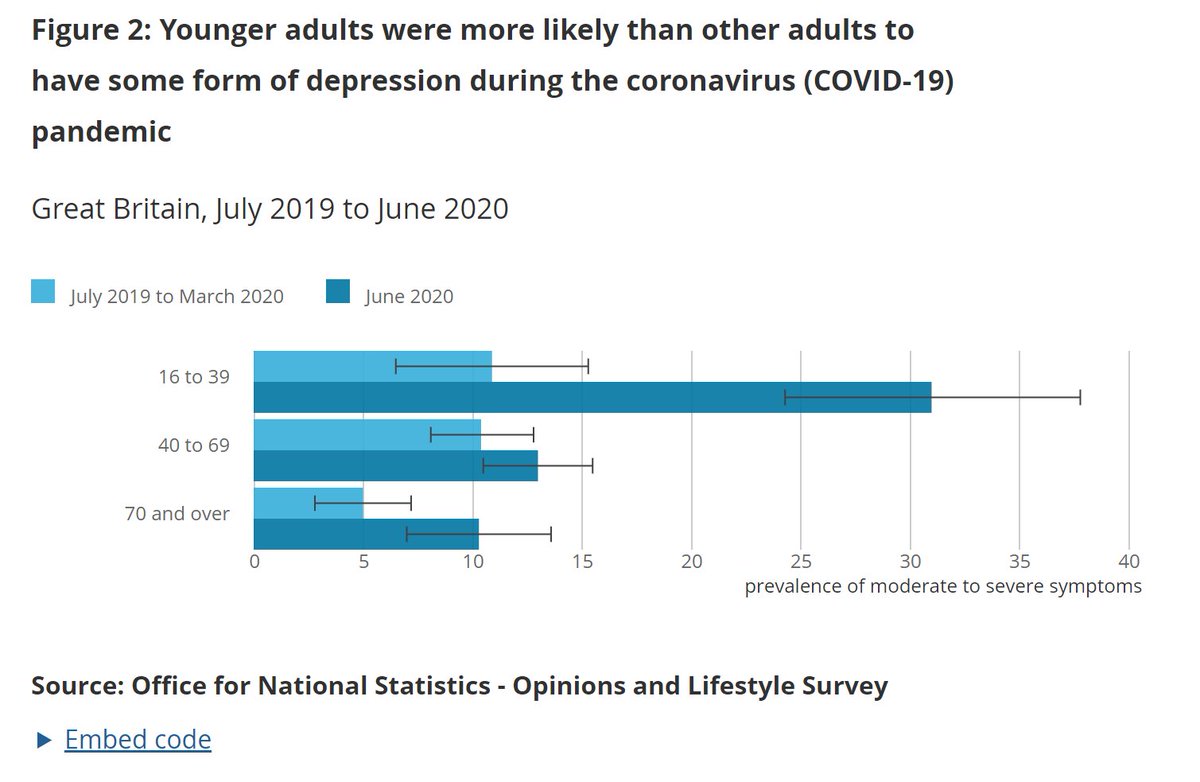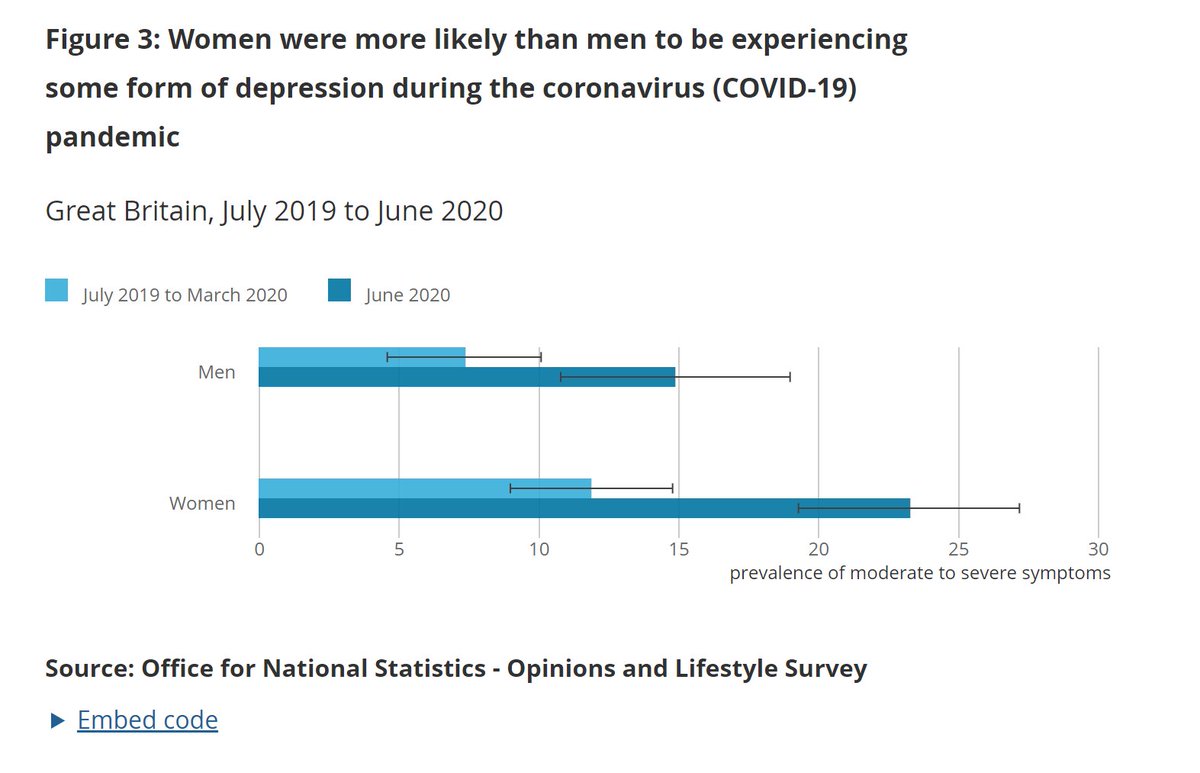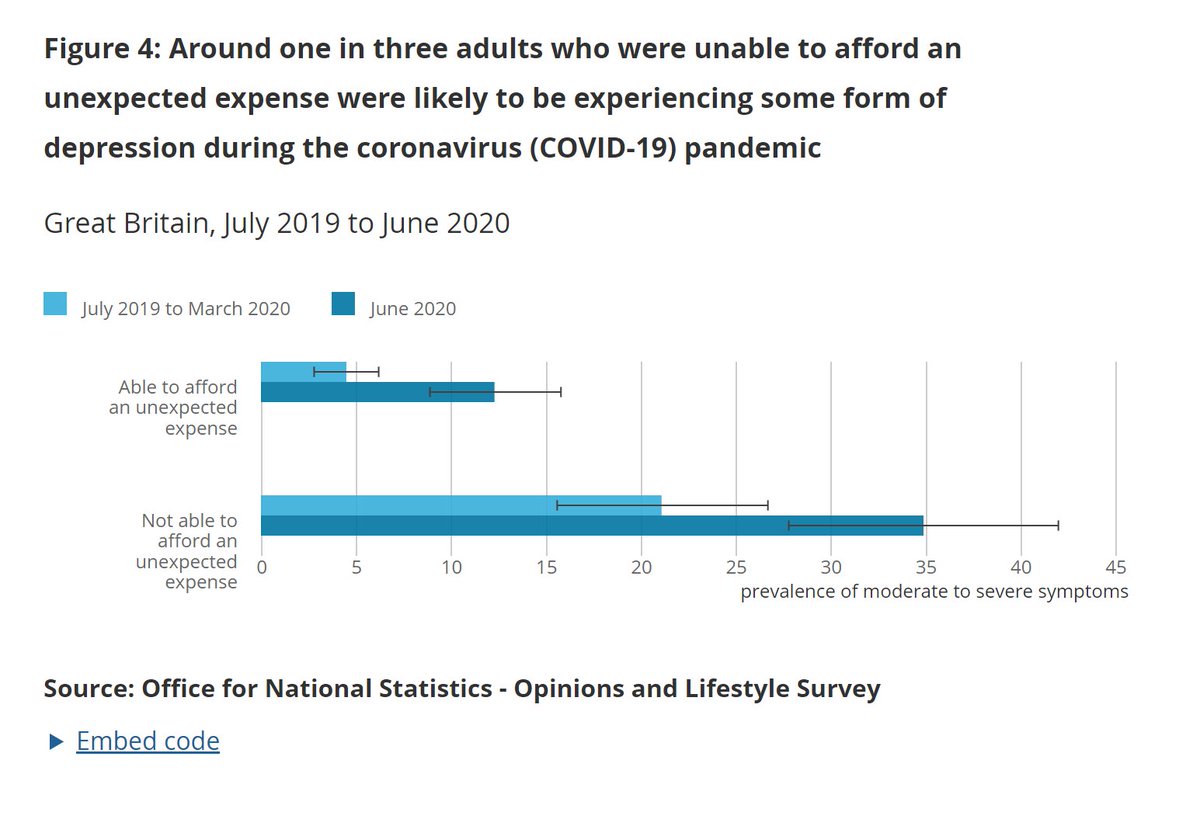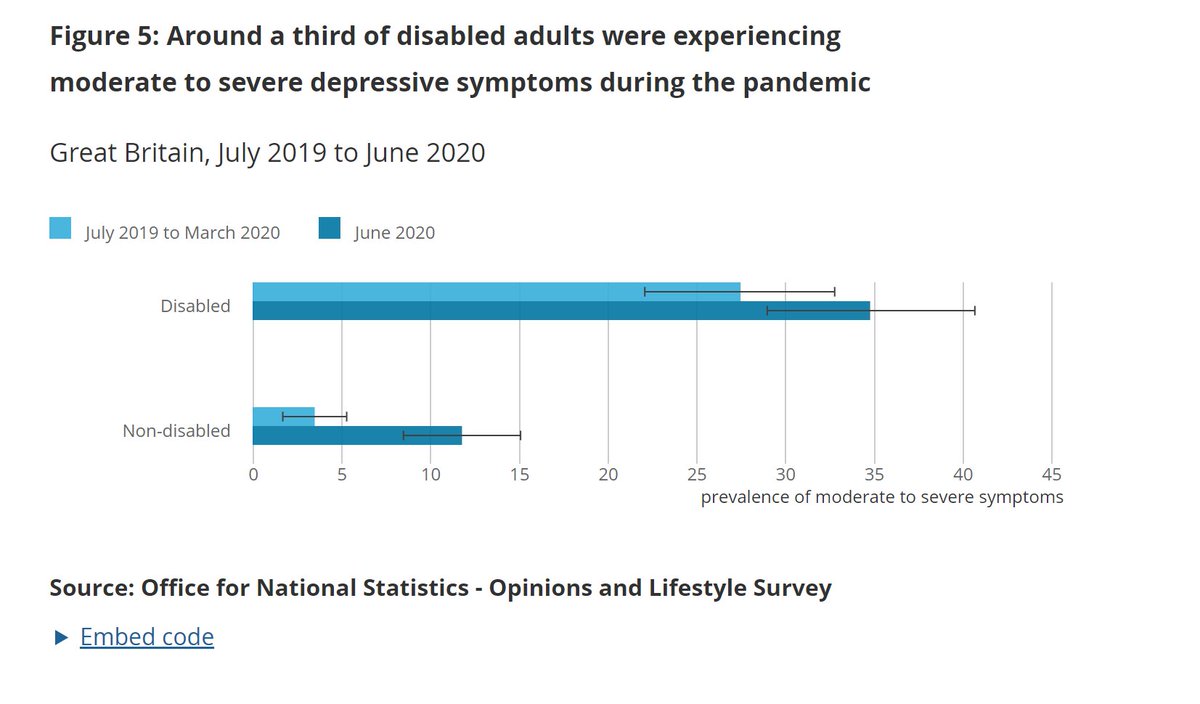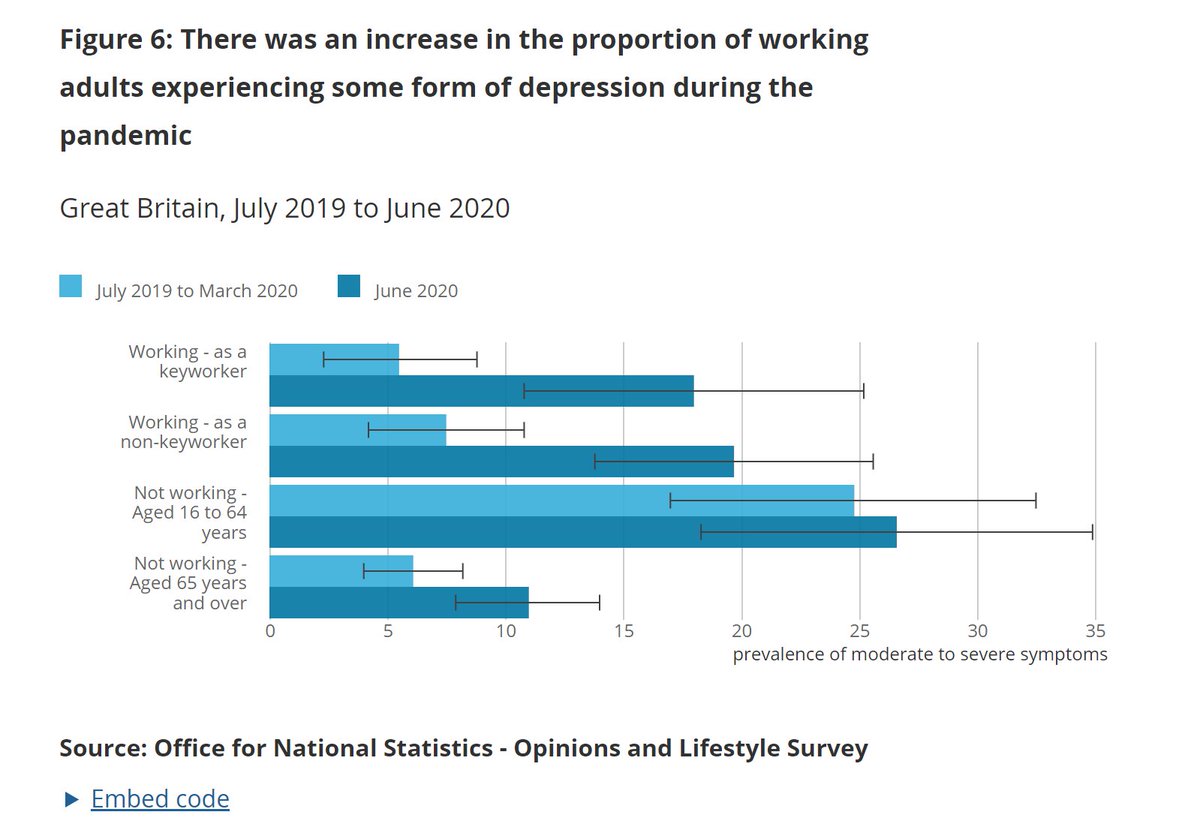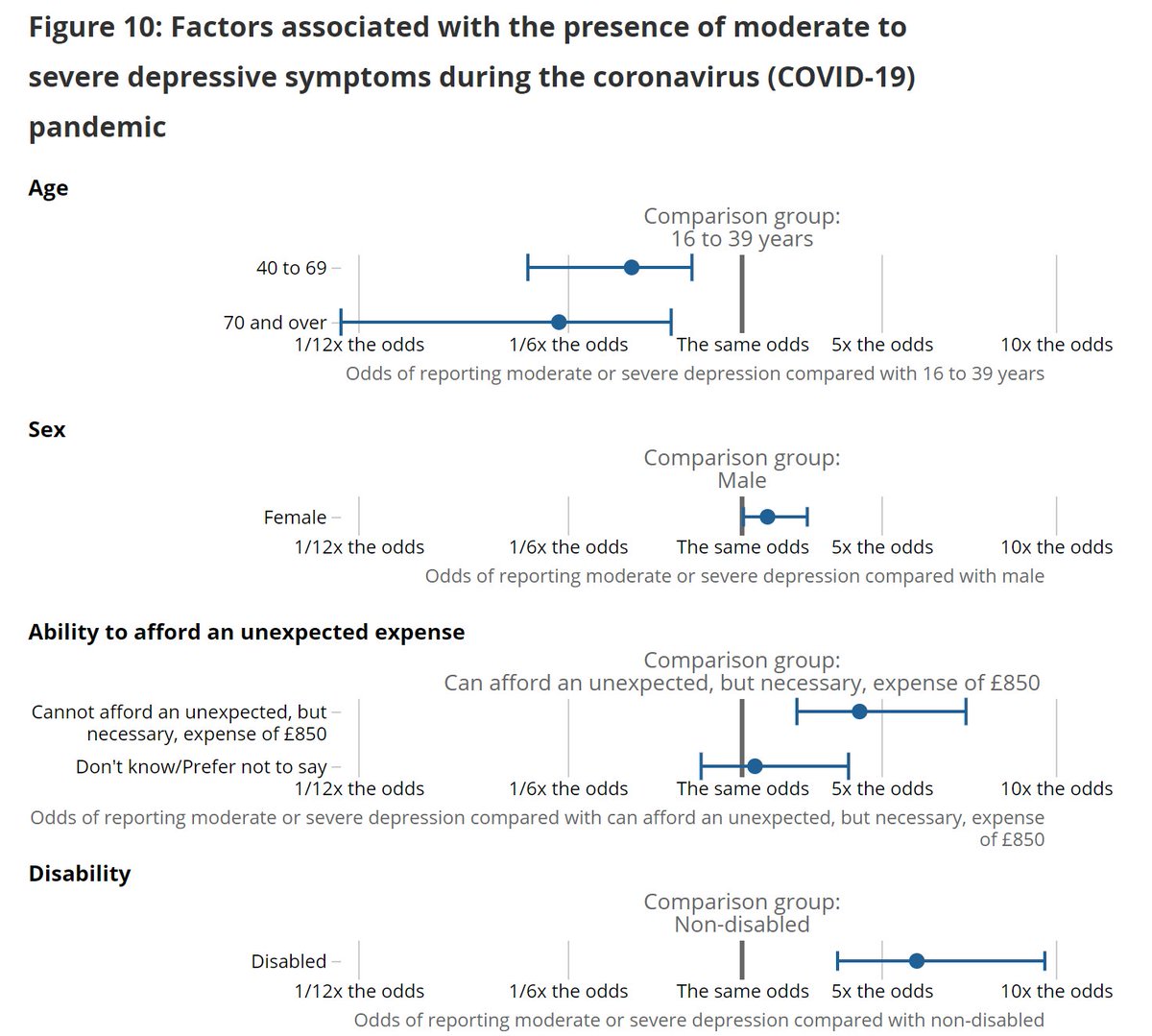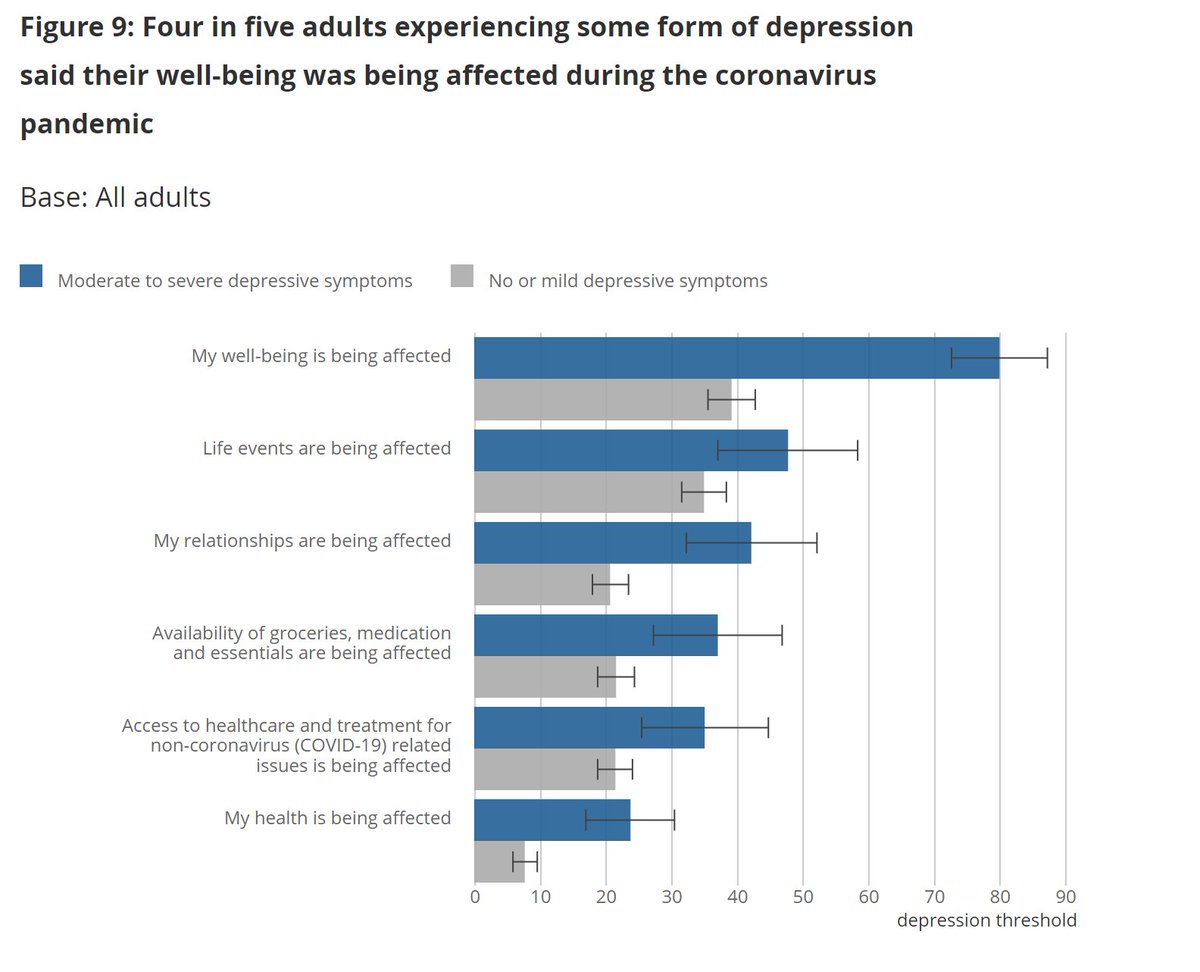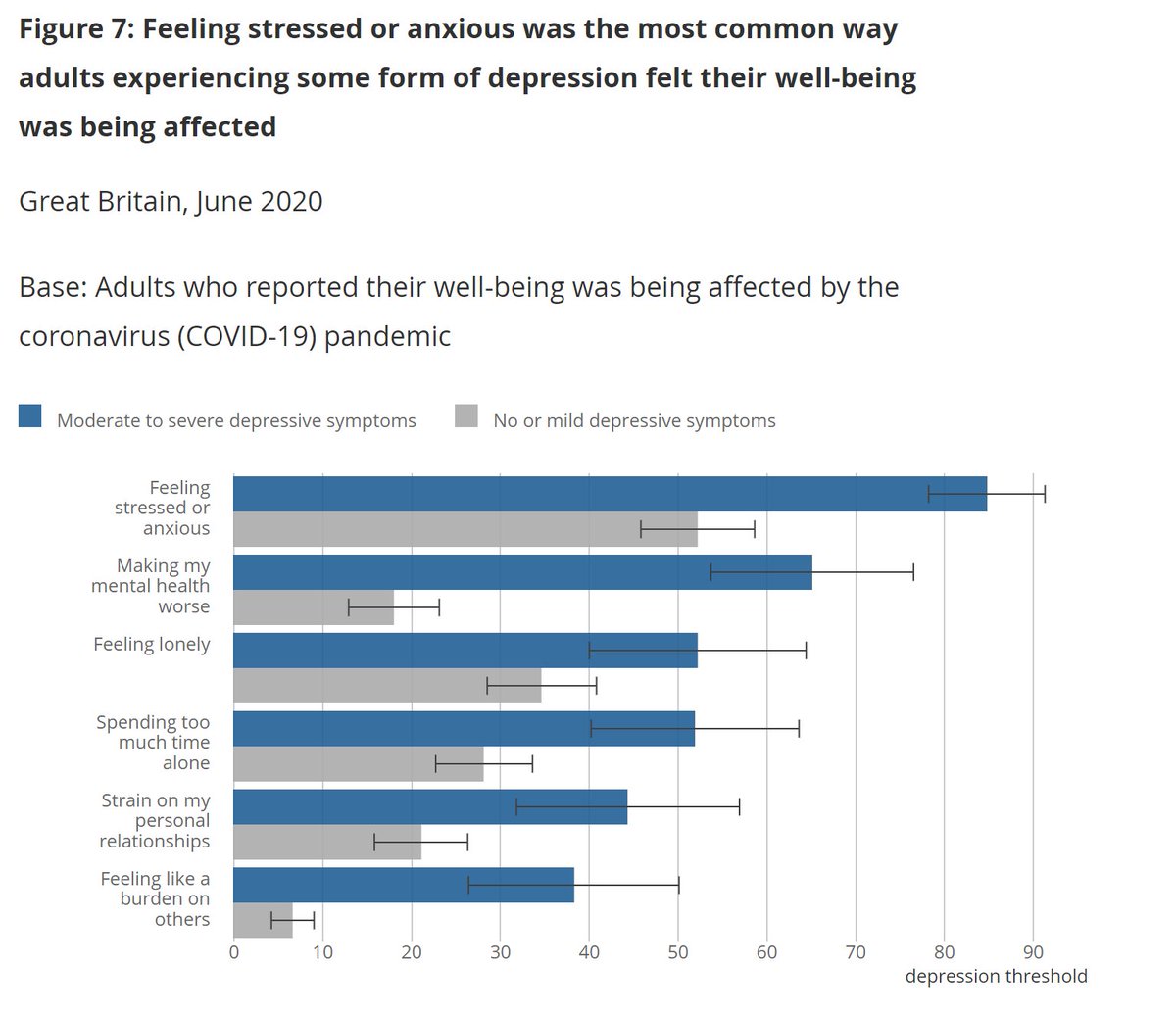Today @ONS we release new data on #Coronavirus and #Depression in Adults.
As part of the weekly Opinions Survey this June, we were able to resurvey 3,500 people who had been surveyed on mental health and depression pre-pandemic.
The results are stark - a short thread
As part of the weekly Opinions Survey this June, we were able to resurvey 3,500 people who had been surveyed on mental health and depression pre-pandemic.
The results are stark - a short thread
First - we find almost one in five adults (19.2%) experienced some form of moderate to severe depression during the Pandemic (2 weeks in June)
This is almost double the 9.7% from before Covid19
https://www.ons.gov.uk/peoplepopulationandcommunity/wellbeing/articles/coronavirusanddepressioninadultsgreatbritain/june2020
This is almost double the 9.7% from before Covid19
https://www.ons.gov.uk/peoplepopulationandcommunity/wellbeing/articles/coronavirusanddepressioninadultsgreatbritain/june2020
The results are particularly stark for younger adults (16-39) compared with 40-69s and 70 years and over.
The proportion of younger adults with depression up to 31% in June, compared with 11% pre-Covid.
The proportion of younger adults with depression up to 31% in June, compared with 11% pre-Covid.
We find that women were more likely to report depression both pre and during Covid pandemic than men.
Women now 23% compared with 12%
Men now 15% compared with 7.5%
Both more or less doubled, both stat significant increases
Women now 23% compared with 12%
Men now 15% compared with 7.5%
Both more or less doubled, both stat significant increases
We looked at financial security by asking whether respondents could afford an unexpected but necessary expense of £850.
Perhaps unsurprisingly those that couldn't were more likely to report depression both during and pre pandemic.
Perhaps unsurprisingly those that couldn't were more likely to report depression both during and pre pandemic.
Similarly disabled people were more likely to report depression during and before the pandemic. Almost 35% during June.
There has also been a notable pick up for non-disabled during the pandemic, but still well below the proportion of disabled people
There has also been a notable pick up for non-disabled during the pandemic, but still well below the proportion of disabled people
Working status - those of working age, who aren't working were most likely to report depression.
There were some notable increases for those in work, both as key workers and non-key workers - the rates for working people have more than doubled since pre-Covid
There were some notable increases for those in work, both as key workers and non-key workers - the rates for working people have more than doubled since pre-Covid
We also found higher rates for those with underlying health conditions.
An increase for those living with other adults compared with single people
An increase for parents.
No strong differences by England/Wales/Scotland or City/Town/Rural living
An increase for those living with other adults compared with single people
An increase for parents.
No strong differences by England/Wales/Scotland or City/Town/Rural living
We applied regression to find the most significant factors for depression during pandemic. We found them to be
Young People (16-39)
Women
Disabled People
Financially less secure (unable to meet £850 expense)
Young People (16-39)
Women
Disabled People
Financially less secure (unable to meet £850 expense)
We looked at impacts of depression on wellbeing and life through the Covid19 pandemic
Unsurprisingly those reporting depression have higher impacts on wellbeing, relationships, health
Unsurprisingly those reporting depression have higher impacts on wellbeing, relationships, health
Feeling stressed or anxious
Feeling lonely
Spending too much time alone
Feeling like a burden to others
Feeling lonely
Spending too much time alone
Feeling like a burden to others
In closing this sombre but important thread
Please remember depression can affect any one of us, at different times in different ways
Please look after each other, spend time with each other and be kind
And please seek help from your GP, professionals, charities when you need to
Please remember depression can affect any one of us, at different times in different ways
Please look after each other, spend time with each other and be kind
And please seek help from your GP, professionals, charities when you need to

 Read on Twitter
Read on Twitter